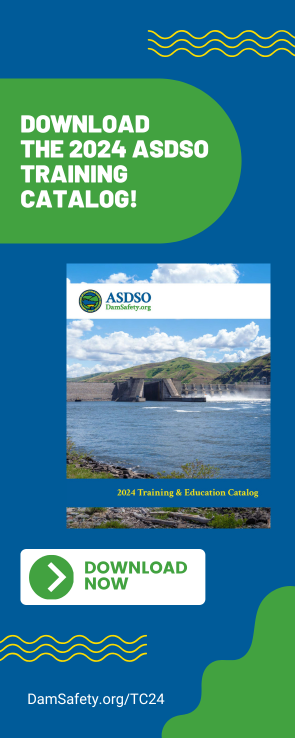
Risk Management for a Portfolio of Dams: On-Demand
There is a growing recognition of the value of using risk assessment as a supplement to traditional engineering approaches to dam safety decision making. This is referred to as a risk-informed approach in which decision making utilizes information obtained from a risk assessment along with other factors, including good engineering practice. Thus, a risk assessment is not the sole basis for a decision, but rather it provides a systematic way of identifying what is important and where uncertainties exist. Risk assessment can also be valuable for justifying the extent and type of risk reduction and the phasing of risk-reduction measures. The first webinar, “Risk Assessment Basics for an Individual Dam,” provided an explanation of the steps involved in performing a risk assessment for an individual dam and how the resulting insights and risk estimates can improve decision making. Examples were provided for evaluating an existing dam and for selecting between risk-reduction alternatives.
This webinar will explain how risk assessment is being used by some owners and regulators to improve the management of dam safety for a portfolio of dams in the context of the owner’s business. The role of risk assessment in strengthening both routine and non-routine dam safety activities will be described. The use of risk assessment for prioritized queues of investigations and risk-reduction measures to achieve more rapid and cost-effective risk reduction will also be described. Examples will be provided of ways in which portfolio risk assessment has led to improving the integration of dam safety with other parts of the owner’s business, such as insurance coverages and increased funding for dam safety.

David S. Bowles, Ph.D., P.E., P.H., D.WRE, F.ASCE
Managing Principal, RAC Engineers and Economists, LLC
Since 1978 David and his colleagues have pioneered the development and practical application of risk-informed approaches to dam safety management. They have completed individual and portfolio risk assessments for more than 800 dams in many countries, ranging from screening assessments to detailed assessments with uncertainty analysis. David has assisted with the development of tailored frameworks for dam and levee safety risk management for government and private owners, regulators and professional bodies in many countries. Clients have included Reclamation, USACE, TVA, FERC, BIA, World Bank, WMO, IAEA, EPRI, EU, ANCOLD, CDA, NSW DSC and many major engineering firms. David has served as an expert witness for law suits related to dam and canal failures, reservoir operation and hydropower generation, toxic tort, and urban flooding.
David is the Managing Principal of RAC Engineers and Economists and an Emeritus Professor of Civil and Environmental Engineering at Utah State University (USU). Previous positions include Director of the Institute for Dam Safety Risk Management and Director of Utah Center for Water Resources Research at USU, Engineering Department Manager and Branch Manager for Law Engineering’s Denver office, and a construction and design engineer for a large international contractor based in the UK.


